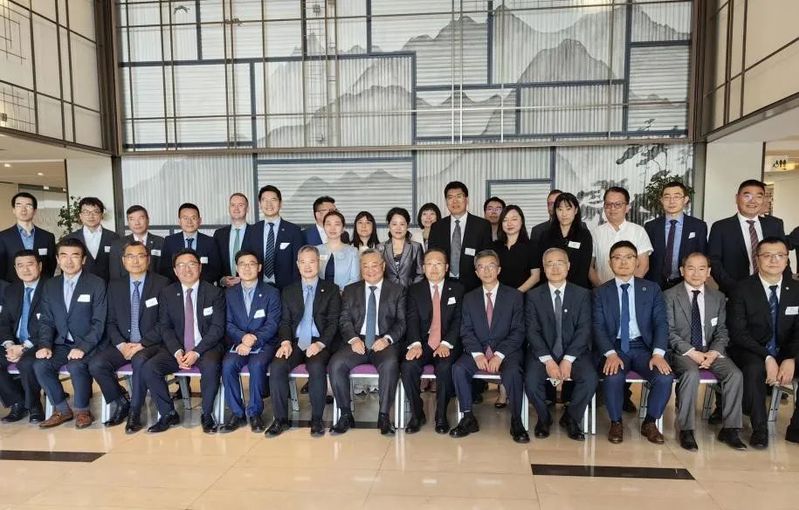On June 15, 2023, Distinguished Professors Wu Fei and Fang Xingdong, and Professor Zhong Bu of Hong Kong Baptist University arrived in Brussels from Beijing for a 9-day trip to Europe.
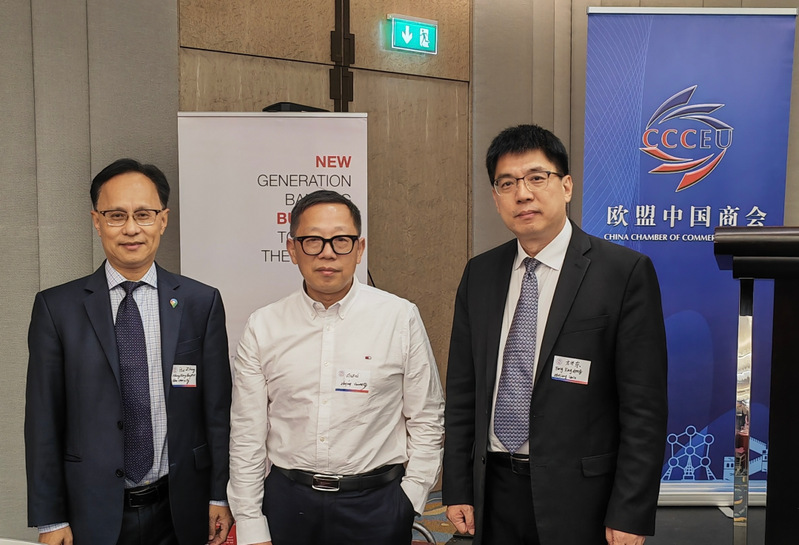
On June 16, Prof. Wu Fei, Prof. Fang Xingdong and Prof. Zhong Bu attended and delivered speeches at the EU-China Business Summit 2023 held in Brussels, Belgium. The highlights of the speech are as follows: At present, more than 5 billion people in the world have been connected, and the global cross-border flow of data is still growing at a rapid rate of 50% every year, which represents closer interconnection, more frequent interaction and deeper collaboration between people, enterprises and countries around the world. This is the general trend of human civilization. There is no denying that closer ties also bring greater risks, with people, societies and nations straining and tearing each other apart, which cannot be avoided and must be addressed in a cooperative manner.Whether decoupling or de-risking, a politically driven approach to mutual isolation is sailing against the current of the digital age. In essence, it is a closed passive defense strategy, which is not conducive to the effective solution of security and risk issues, let alone the common development and progress of mankind in the digital era.
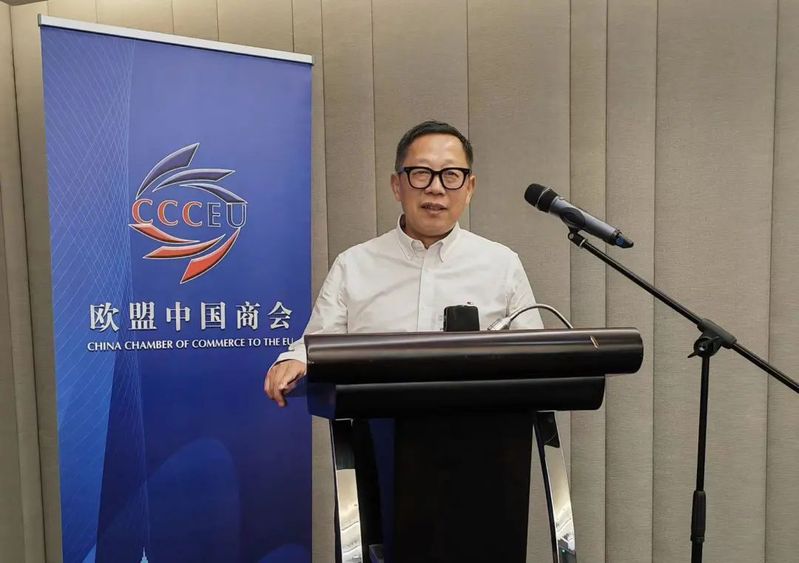
In fact, the digital mutual suspicion between countries will cause great damage and expand from the field of digital technology and the digital economy to almost all fields. We have just released the first of a series of China-EU digital reports: the Report on Digital Trust between China and Germany. Taking China and Germany as examples, the issue of digital mutual trust was raised to illustrate the challenges we face and the potential huge risks in the digital age.
At present, there is a significant asymmetric relationship between Chinese and German digital embedding. China maintains an open attitude towards German companies and has a high degree of trust in Germany, and German companies occupy an important position in China's digital core sectors.However, the technology and products of Chinese enterprises in the digital level in Germany are not widespread, except for a few companies such as Lenovo and Huawei.
Take SAP, Germany's leading software provider, for example, which has more than 70% of the ERP market share in China.These enterprises include a large number of central state-owned enterprises, and the industry distribution is all over the key industries of China's national economy and people's livelihood. The daily operation of enterprises in these industries has been deeply bound with ERP, and almost all the core business data of enterprises are stored in SAP's ERP system.
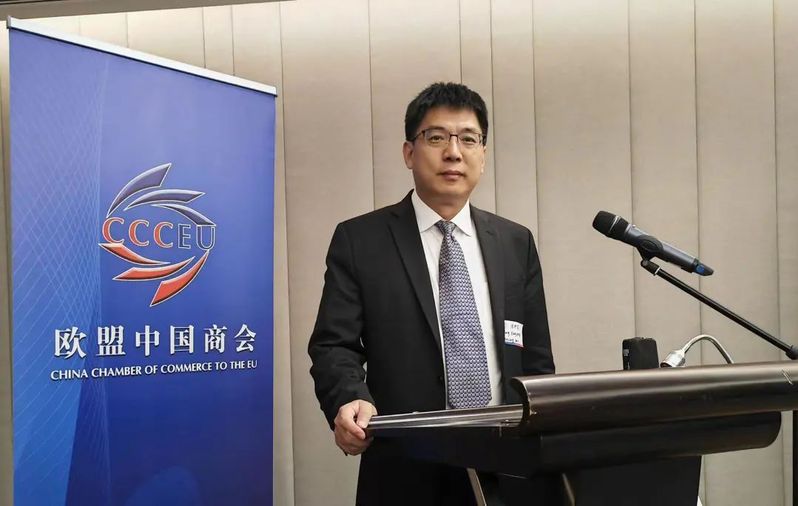
PLM, PLC, CAD, CAE and other industrial software play an important role in managing manufacturing and R&D processes. In the field of PLM software systems, Siemens holds the first market share in China, more than 20%. Siemens PLM products are widely used in key manufacturing industries such as automotive manufacturing, IT communications, semiconductor electronics, and construction machinery. At the same time, it also involves the core security industry such as national defense, aerospace and other industries. Industrial automation system and equipment is the key to realize industrial digitalization and intelligent manufacturing. Siemens Industrial Equipment -PLC China region revenue of more than 6 billion yuan every year, accounting for more than 40% of China's PLC market share; its share in the high-end PLC market is more than 50%, in an absolute dominant position.
With the continuous improvement of the automobile intelligence and the outbreak of the intelligent automobile industry, the automobile has in fact become the new hyperterminal after the mobile phone, which will carry more and more sensitive information including user information. The revenue in China of Infineon, the world's largest automotive semiconductor company, accounts for 37% of its total sales; Bosch's automotive and intelligent transportation technology business generates more than 100 billion yuan in revenue in China.
According to data released by Ifo, Germany's economic research institute, if Germany's industrial chain returns from China to Germany, Germany's GDP will lose 10% of its GDP.If a trade war breaks out between China and Europe, and China takes countermeasures, Germany will suffer six times the economic loss of the UK when it leaves the EU. China-germany cooperation is mutually beneficial, and win-win cooperation is the only reliable way to avoid damaging escalation of the trade situation. Only win-win is a sustainable steady-state outcome.
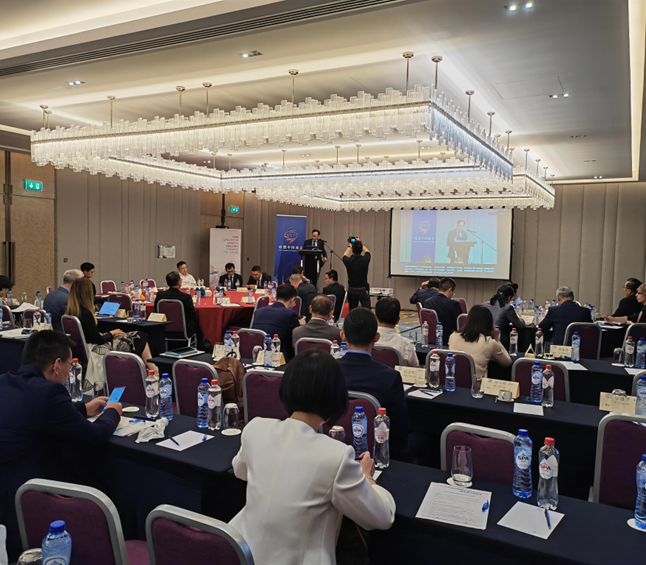
Clearly, in the face of the new risks and challenges of the digital age, we can only adopt an open and active defense strategy. It is crucial and urgent to establish a brand new technological and institutional system through more comprehensive communication and cooperation in the context of the trend of closer interconnection, so as not only to effectively eliminate and reduce potential risks and hidden dangers, but also to not stop further strengthening cooperation and development. There is no Husted trap of big brother versus second brother between China and Europe. The two sides should stand at the height of the common development of mankind, be more rational, objective and pragmatic, take the lead in establishing an effective state-to-state digital mutual trust mechanism for the world, and set a model for global digital mutual trust.
Finally, as part of the academic community, we are committed to providing rational, professional and objective academic perspectives to address the challenges of enhancing global digital mutual trust. We want to engage, build trust and collaborate with European academics, think tanks, businesses and governments to achieve this goal.
